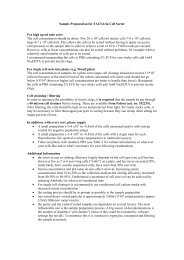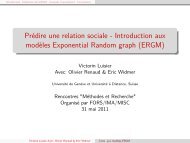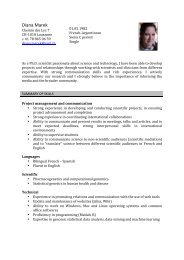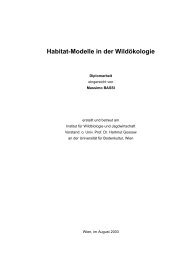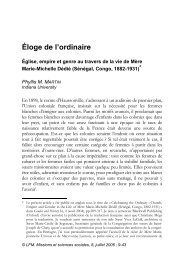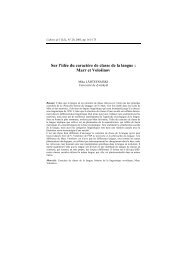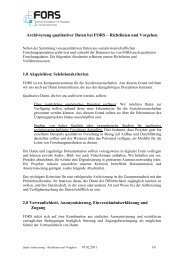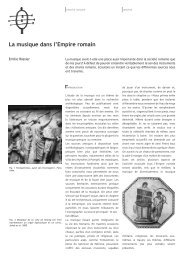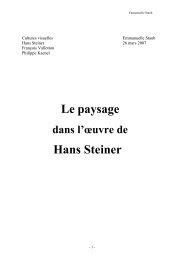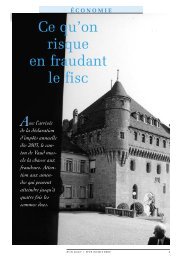conference programme book - European Survey Research ...
conference programme book - European Survey Research ...
conference programme book - European Survey Research ...
Create successful ePaper yourself
Turn your PDF publications into a flip-book with our unique Google optimized e-Paper software.
130 THURSDAY 21 JULYwhere they filled in quesonnaires and had a computer assisted personal interview by a physician. Vaccina-on cards were presented and photocopied for later data entry. The frequency of missing values and interviewervariability were esmated for on-site assessment. Rates of false posive and false negave rangs werecalculated.Results3.13 Causal designs in non-experimental researchTo be held on July 21, 2011 from: 11:00 to 12:30, in room 321.Coordinated by:• Samuel Bendahan - University of Lausanne, Switzerland• Marius Brulhart - University of Lausanne, Switzerland• Lorenz Goee - University of Lausanne, Switzerland• Rafael Lalive - University of Lausanne, Switzerland• Philippe Jacquart - University of Lausanne, Switzerland3.13.1 Can We Do Well by Doing Good? A Reassessment of the Health Benefits of Volunteering UsingPropensity Score ModelsL. TAO 1 , L. JIN 11 The Chinese University of Hong Kong, ChinaIt has long been argued that altruisc behavior, such as volunteering, may benefit health through a variety ofpsychological and social pathways. A number of longitudinal studies have linked baseline volunteering acvi-es with posive health outcomes during the follow-up. However, individuals who volunteer can be drascallydifferent from those who do not, in ways that are highly consequenal to health outcomes. The problem ofendogeneity can be serious even with longitudinal study design and an extensive array of control variables.The main goal of this study is to reassess the presumed health benefits of volunteering using propensity scoremodels. We use the data from the Health and Rerement Study (HRS) in the USA, which is a longitudinal surveyspanning 15 years from 1993 to 2008. We first replicated the results from a published study by Luoh andHerzog on volunteering and health using the data from 1997 to 2000...3.13.2 Esmang Causal Effects Using Observaonal Design: Adjustment for Selecon Bias in ComplexLongitudinal Data on Early Maternal Employment EffectsY. Im 11 University of Chicago, United StatesThis paper arculates causal inference concepts and methods in the context of a non-experimental study ofme-varying treatments. In the presence of me-varying confounders, defined as covariates that are outcomesof prior treatments but also predictors of later treatment assignments, standard methods of adjustment canlead to bias—due to special problems of endogeneity. To cope with this problem, the current study appliesinverse-probability-of-treatment weighng (IPTW) to complex longitudinal data. Unlike standard stascalmethods, IPTW can appropriately adjust for confounding and selecon bias due to measured me-varyingcovariates affected by prior exposure. IPTW is a direct funcon of the propensity score, as the weight is completelydetermined by the fied propensity score model and is esmated parametrically...3.13.3 Propensity Score Methods for Causal Inference: The Relave Importance of Covariate Selecon,Reliable Measurement, and Choice of Analyc TechniqueP. Steiner 11 University of Wisconsin - Madison, United States



